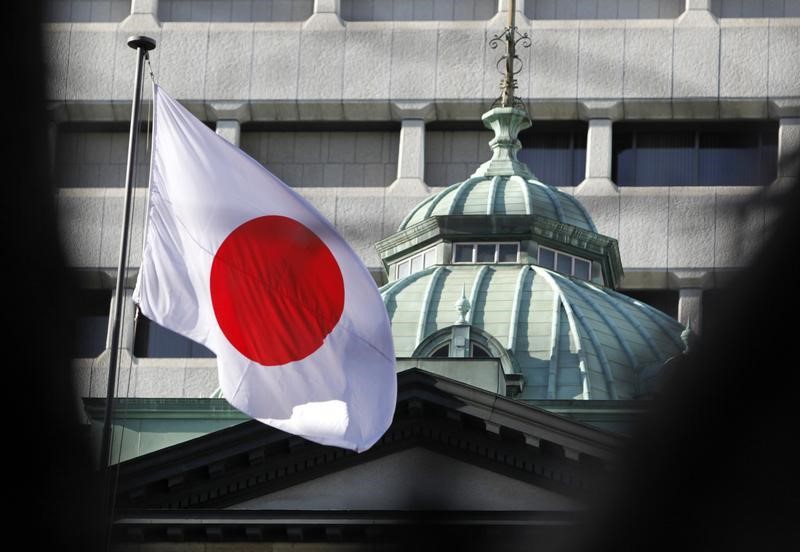By Leika Kihara
TOKYO (Reuters) - The Bank of Japan, facing stubbornly low inflation, is in unusually active discussions before this month's policy decision, with changes to its interest-rate targets and stock-buying techniques on the table, people familiar with the central bank's thinking told Reuters.
Discussion is preliminary and will depend on fresh inflation forecasts from policy board members, the sources say. However, policymakers are already debating tweaks to Governor Haruhiko Kuroda's massive easing, which is aimed at lifting the world's third-biggest economy decisively out of decades of deflation.
The first BOJ tweak to policy since 2016 would come as the central bank's main measure of inflation slowed for a third straight month to just 0.2 percent. This underlined expectations that the BOJ will this month trim its inflation forecasts out to the fiscal year ending March 2021.
Such cuts in its forecasts set up debate about the BOJ's policy, under which it buys massive amounts of Japanese government bonds and exchange-traded funds (ETF) to flood the economy with cash, while pushing short-term rates negative and capping the 10-year bond yield at zero.
While a policy change this month could theoretically include additional easing, debate for now focuses on ways to make the massive stimulus programme more sustainable - given it may take far longer than expected to reach its 2 percent inflation target, said the sources.
"If it turns out it would take too long to hit 2 percent inflation, there could be discussions on a policy change," one source said. "The BOJ could consider steps to make its policy more sustainable if structural factors are behind weak inflation," another source said, adding that the cost of prolonged easing is becoming "hard to ignore".
The sources declined to be identified as the debate is private.
COMMUNICATION FEAT
Having such a debate at all shows the dramatic shift from Kuroda's promise five years ago of hitting the inflation target by around 2015.
There is no consensus on whether and what kind of steps would be needed, as that would depend on how big the downgrade in the board's price projections could be, the sources said. But there are several ideas on the table, they said.
The BOJ could tweak its yield-curve control (YCC) programme to allow for a more natural rise in long-term interest rates to ease the pain on banks from years of near-zero rates, they say.
Other ideas include operational changes to the way the BOJ buys government bonds and ETFs, a nod to critics who say the bank's huge purchases are drying up market liquidity and distorting price action, they say.
Having used up its ammunition, many BOJ officials are wary of ramping up stimulus and have publicly warned of the rising cost of prolonged easing, such as the strain on bank profits.
Profits at Japan's roughly 100 regional banks are being squeezed by the BOJ's ultra-loose policy. More than half the regional banks lost money on their core lending and fees businesses in the year to March 2017.
Concerns have also grown over the BOJ's commitment to buy 6 trillion yen ($54 billion) worth of ETFs per year, which has reduced floating shares in the market and put the bank on track to become a top shareholder of big Japanese companies.
While allowing long-term rates to rise more could help ease the pain on banks, the BOJ could struggle to justify such a move when inflation remains distant from its target, analysts say.
This would raise a messaging problem for the BOJ, which would seek to portray the rate rise not as a policy tightening but a step to allow more flexible policy, the sources say.
"The BOJ could try to argue that by making its policy framework more sustainable, it is doing more to help achieve the target," a third source said. "It's a pretty challenging communication feat."
